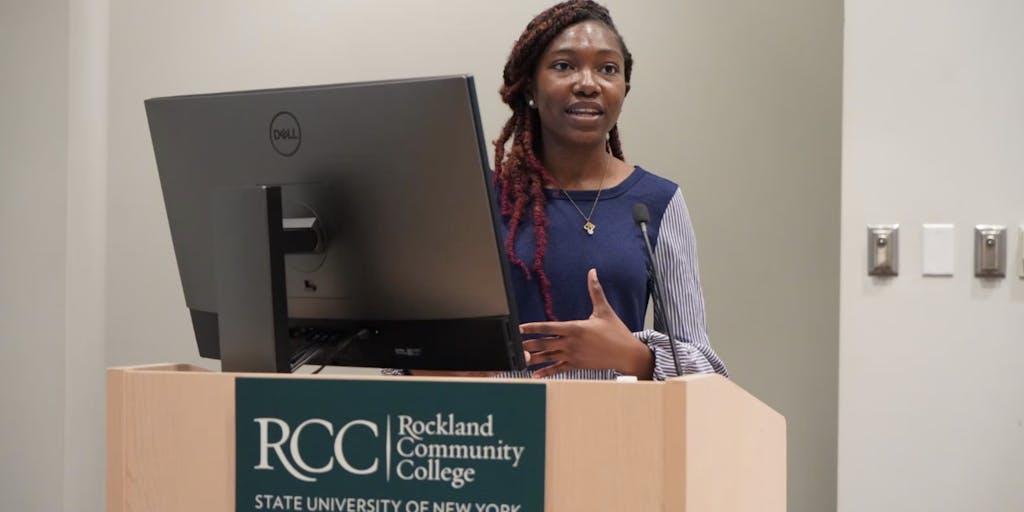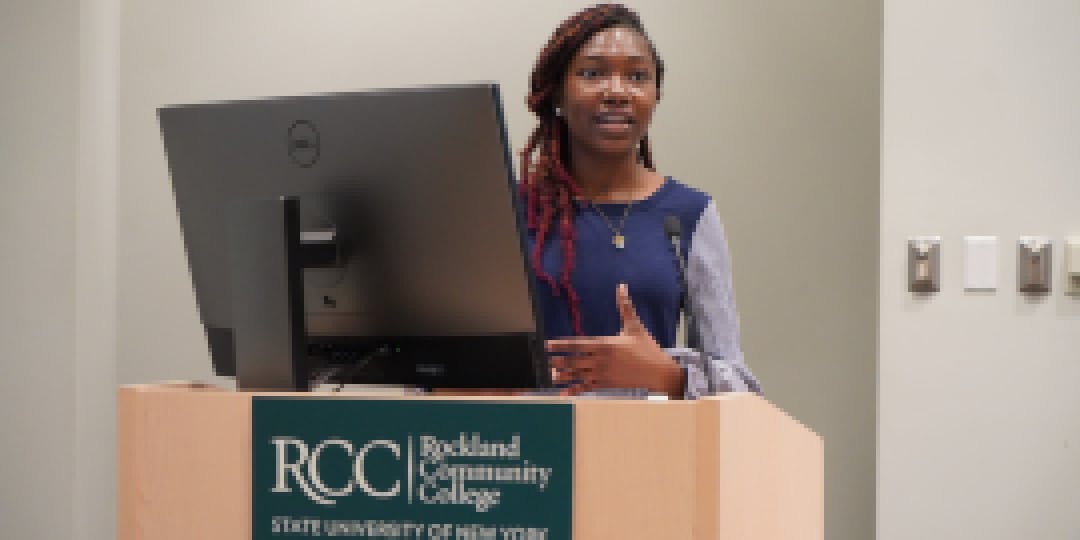

Last year, New York’s Rockland Community College realized it had a problem. The passing rate for gateway classes—those that all students need to take—wavered slightly and dropped by one point to 75 percent. But for Black men, the pass rate tumbled to 64 percent.
Looking just at college algebra, the passing rate for Hispanic men fell below 50 percent during the last two years.
“The equity gap is pernicious and growing,” says Stephen Burke, dean of Arts and Humanities for the college, which serves about 6,800 students and is located about 30 miles north of New York City. “In a few months, there will be another pandemic anniversary, and it has not impacted all students equally. We need to understand at a deep level the barriers to student success to make solutions.”
These days there are plenty of conversations happening in higher education about the importance of equity on campus and how it can help students from underrepresented groups succeed. But Rockland has moved beyond talking about it or simply asking students what they need.

Instead, the school wants students to help test and design the learning tools they use—in hopes that their feedback can improve pass rates and other metrics. It’s part of a partnership with Lumen Learning, creator of the college’s courseware, that will directly inform the products and content the company develops for the campus.
Officials from both parties launched the Lumen Learning Testing Center at the college earlier this year. Four student interns from Rockland will recruit peers to test learning software and share their findings with the company. They will also take part in brainstorming solutions for problems that arise during testing.
The concept is what Susan Deer, provost and executive vice president of the college, calls an “a-ha-duh” moment.
“A-ha, that’s really smart, and duh, why didn’t we think of that before?” she explained during a news conference heralding the launch. “We’ve been providing sameness and thinking we’re doing justice to our students. In reality it’s about equity, and we need to provide students what they need.”

Burke says that while faculty have enthusiastically embraced open education resources as a way to remove the roadblock of textbook costs, the strain of the pandemic is reflected in the college’s data.
Pascalyn Omotosho is one of the interns charged with working with other Rockland students to test Lumen Learning products. She hopes the peer-to-peer relationship will encourage them to share their honest opinions, and Omotosho is excited to “help to create more equitable and affordable education for people from different walks of life.”
The testing center started as what Lumen Learning co-founder and CEO Kim Thanos calls one of her “hairbrained schemes,” which typically are met with one of two reactions at the company.
“People start to back away slowly and cautiously, or what starts as an idea becomes … more practical, maybe less of a grand scheme and a little more of a small innovation and a small step forward,” Thanos says.
Ultimately, the project aims to make students co-creators of the materials they will use in class, Thanos says, and provide course designers, faculty and her company with direct insight into their thought process. About 500,000 students across the country will use Lumen software as part of general education classes this year, she adds, with more than half being Black or Latino and more than 70 percent being Pell eligible.
“We know that race and income are a predictor of success in those higher education courses, and that is the change we are trying to create in the world,” Thanos says, “ensuring every student in these courses has an equal opportunity for success and … to change their economic future and life trajectory.”
She says that within a couple years, millions of students could benefit from the testing center team’s work.